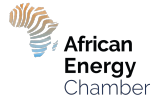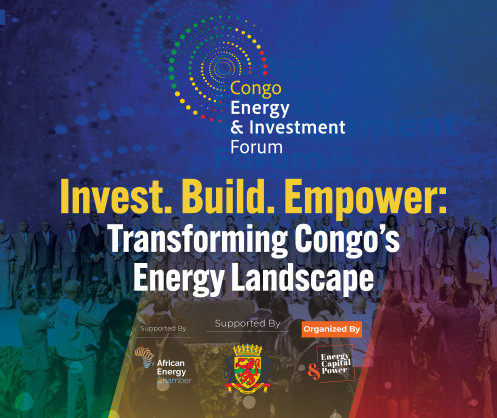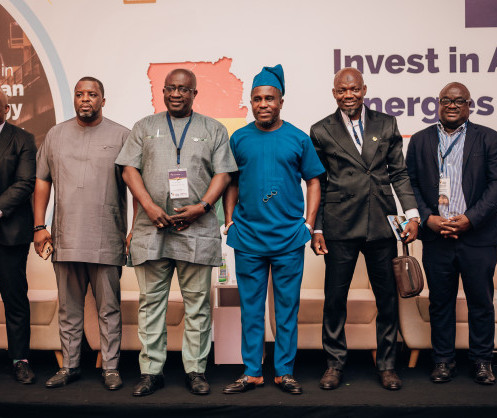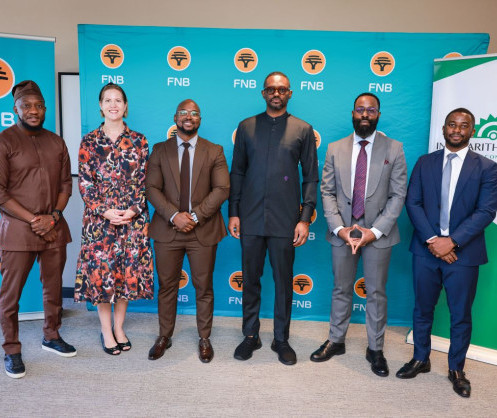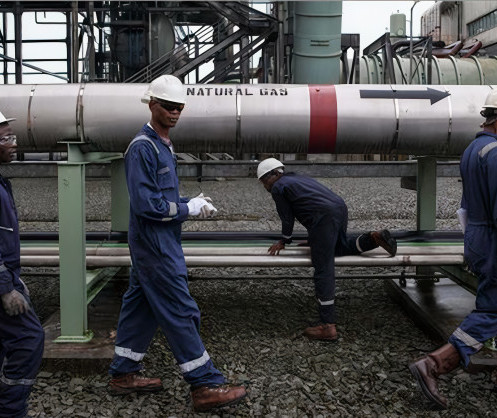
More than 1 billion barrels (bbl) of oil and 40,000 billion cubic feet (bcf) of natural gas await extraction
JOHANNESBURG, South Africa, July 18, 2022/APO Group/ —
By NJ Ayuk, Executive Chairman, African Energy Chamber (https://EnergyChamber.org/)
Beneath the coastal waters of Senegal and neighboring Mauritania lie some of the largest oil and natural gas discoveries in recent history, most occurring between 2014 and 2017. More than 1 billion barrels (bbl) of oil and 40,000 billion cubic feet (bcf) of natural gas await extraction.
These discoveries have reinvigorated industry interest in the Senegal-Mauritanian basin. Despite the vast potential, though, understanding how to turn it into a significant production hub is still evolving. Previous attempts to monetize smaller finds have foundered. Production levels at regional facilities have declined over the last decade. While Senegal’s consistently low-volume Gadiaga project remains in operation, at Mauritania’s Deepwater Chinguetti project, production ceased altogether at the close of 2017.
The question of how to exploit these new reserves, especially considering that they cross international boundaries, is being answered in part through partnership. The complexities inherent to fossil fuel ownership claims were addressed and amicably resolved in 2018 when the two countries agreed to the terms of the Inter-State Cooperation Agreement that delineated equal shares of the offshore resources. The governments and the local workforces are ready for progress. They are eager to see the various fields in this zone operating at their highest capacity.
However, a lack of existing infrastructure means that developing these projects will be a considerable undertaking requiring serious investment from committed partners. Further complicating matters, timing is a factor too, and the clock is ticking. Mauritania, for example, needs to find a substitute for its iron mining business, which has provided for a sizeable portion of the national economy but is subject to the ebb and flow of demand from key customer China. A decrease in the market paired with an expected drop in the trading price would substantially impact the nation. The fiscal gap could be filled with proceeds from liquefied natural gas (LNG) produced from Mauritania’s fields but only if production can come onboard fast enough to satisfy Europe’s growing LNG needs, which are expected to peak in the mid-2030s.
The problem is, neither Mauritania nor Senegal has the means to bring offshore gas to domestic markets or to export LNG to international markets. Onshore gas-to-power infrastructure is minimal at best. Successfully monetizing this region’s resources is an objective requiring proportionate attention paid to addressing these inadequacies.
A Prescription for Success
As detailed in the African Energy Chamber’s Petroleum Laws – Benchmarking Report for Senegal and Mauritania, opportunities exist for collaboration between local governments and international oil companies (IOCs) that would accelerate the development of these offshore reserves.
Although it’s possible that someday Mauritania could connect with one of Algeria’s three pipelines to Europe, floating liquefied natural gas (FLNG) vessels offer a more immediate and affordable solution.
International pipelines, an unrivaled method of fuel delivery when completed, are accompanied by their own unique, time-consuming difficulties during the planning stage. Any pipeline project must consider the potential for community displacement while simultaneously contending with the geological features and vegetation management issues. The risk of security concerns is another factor. While Senegal and Mauritania have not struggled with security issues, it is possible that instability in other countries in the region, such as the Islamic insurgency in neighboring Mali, could spread and pose a threat to land-based infrastructure. FLNG vessels like that offered by Golar, New Fortress Energy and Technip offer a reasonable way to negate most of these hindrances.
A Time to Act
LNG export terminals, maritime logistics operations, and pipeline networks would all play a role in satisfying the world’s already tremendous and growing need for energy
Despite these time-sensitive challenges, Senegal and Mauritania offer international oil companies (IOCs) an undoubtedly lucrative opportunity deserving of investment. If the recent volatility in the European energy market is a forecast of coming circumstances, now is the time for international operators to establish solid relationships in Africa.
Ideally, IOCs should erect infrastructure that supports every facet of African gas and oil production. LNG export terminals, maritime logistics operations, and pipeline networks would all play a role in satisfying the world’s already tremendous and growing need for energy —natural gas especially. Large-scale expenditures like these are in the best interest of IOCs, and Senegal and Mauritania extend a degree of cooperation not found elsewhere in the world.
Promising Steps
Mauritanian leadership has been proactively attracting international investment by relaxing restrictive business regulations, developing a gas master plan, and designating the port city of Nouadhibou as a gas processing, import, and export hub.
In addition to establishing offshore exploratory relationships with BP, Kosmos Energy, and Mauritania’s own national oil company, Société Mauritanienne des Hydrocarbures et de Patrimoine Minier (SMHPM), the nation also seeks to develop onshore refineries in the effort to combat energy poverty on a grand scale.
President Macky Sall has pushed and executed a plan to improve the country’s international appeal. Outlined in 2014, the Plan for an Emerging Senegal (PES) allocates billions to industrial infrastructure across the nation.
Construction of a deepwater port in the capital city of Dakar began earlier this year, as did the construction of Ourossogui-Matam Airport in the northeast. Improvement projects at airports in Kedougou, Tambacounda, and Ziguinchor have also commenced.
As of last year, high-speed, regional express rail travel is available in Senegal, and an expansion of the Dakar-Diamniadio-AIBD Toll Highway is currently underway.
Additionally, Dakar will host the MSGBC Oil, Gas & Power conference and exhibition Sept. 1-2 this year, where industry leaders will present the case for further international investment in Senegal and the region on the world stage.
Reinvestment: The Keystone of Sustainability
The African Energy Chamber is invigorated by the notable and ongoing progress in the MSGBC Basin. We regard success in the region as a certainty, but only with monetization and reinvestment in infrastructure will that success prove long-lived.
We encourage the governments of Senegal and Mauritania to remain vigilant concerning the monetization of their reserves. Each step of the gas value chain should generate revenue, and a portion of that revenue should further finance infrastructure development at home.
The worldwide demand for natural gas is already strong, and that demand increases with the passing of each season. Senegal and Mauritania stand uniquely poised to satisfy their national energy needs while satisfying those of Europe and beyond. Decisive action now paired with long-term, committed partnerships will guarantee the achievement of this objective.
